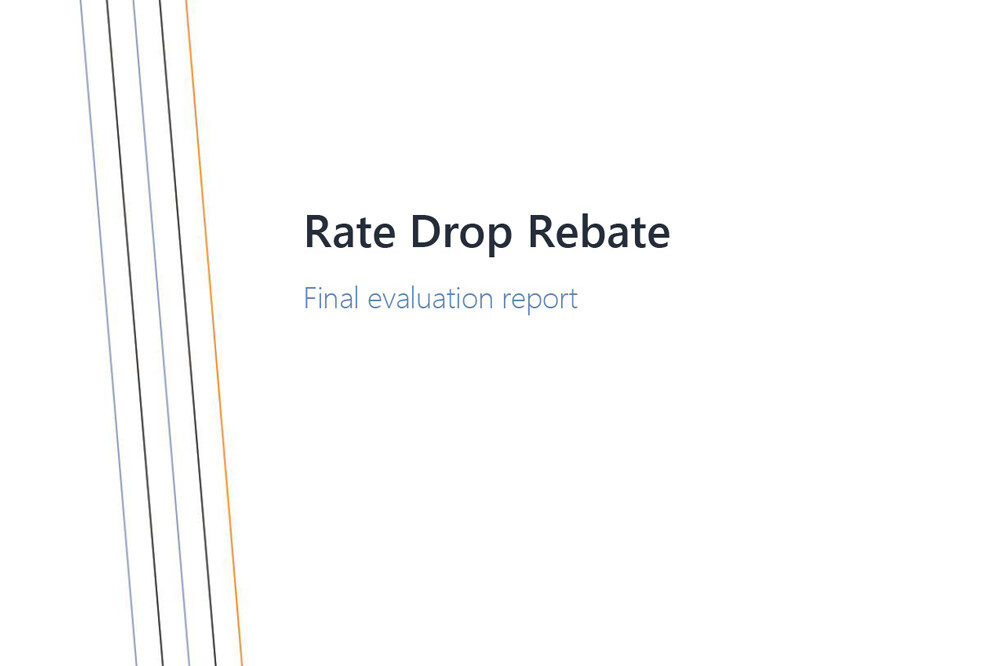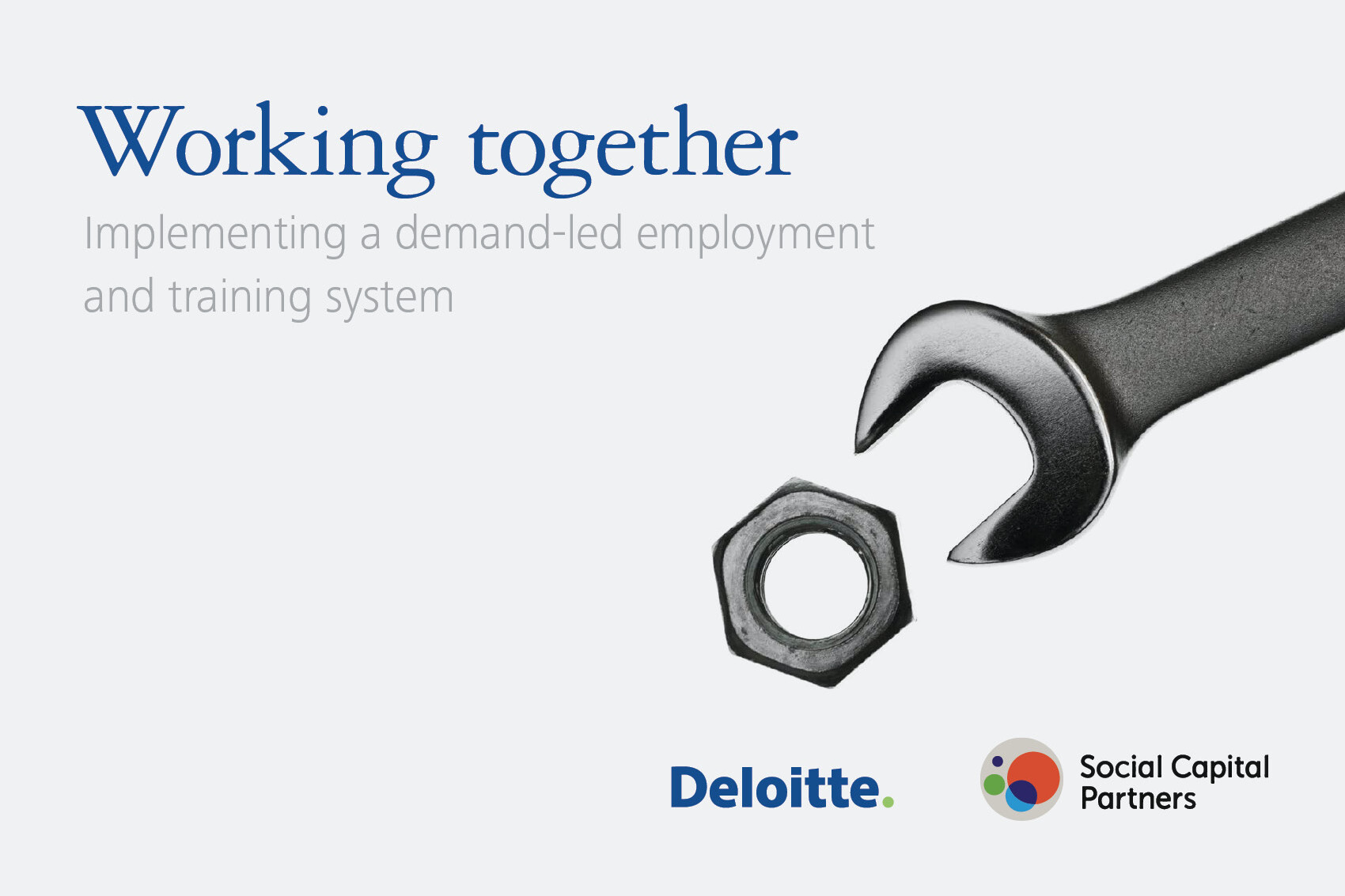Local independent businesses are important to community economies. Right now, they are under threat.
Canada should not accept that a few larger players will drive up prices and extract wealth from local communities. Entrepreneurs need conditions that allow them to start a business or enter a market and have a realistic chance at success.
Our economy is being remade every day by practices that are consolidating industries and creating barriers for new entrepreneurs. Big firms and financial interests are using their position of dominance to crush smaller businesses and concentrate wealth and ownership in fewer hands.
Smaller businesses, particularly those in smaller towns and cities, are often the lifeblood of the community. Main streets are home to vet offices, daycares, shops, pharmacies and dental clinics. Continued consolidation of these businesses, often through global private equity firms, is bad for workers, communities and our economy.
Independent businesses build economic resilience and social capital. At SCP, we advocate for policies that support independent businesses and dreams of entrepreneurship.

On this topic
Ontario wakes up to the succession tsunami
In November, 2025, the Ontario provincial government finally stepped into the looming “succession tsunami,” launching a modest $1.9M Business Succession Planning Hub to help micro-business owners plan exits through local Small Business Enterprise Centres. Notably, the hub spotlights employee ownership and the new Employee Ownership Trust, signaling a shift toward mainstream adoption. But, as Dan Skilleter writes, Ontario’s approach focuses narrowly on retiring owners, ignoring how different buyers shape risks and benefits to workers, communities and Canada's broader economic sovereignty. This is a promising start that could and should grow into a broader succession-planning policy that protects Ontario’s long-term resilience.
Smith School of Business launches new Employee Ownership Research Initiative
Smith School of Business at Queen's University is launching Canada's first-ever research initiative focused on deepening Canada’s knowledge and understanding of a powerful succession model that can enhance outcomes for owners, employees and communities: employee ownership. With funding support from Jon Shell, the EORI will be housed in Smith’s Centre for Entrepreneurship Innovation & Social Impact (CEISI). The initiative will shape a made-in-Canada approach to employee ownership and create a multi-disciplinary network of academics, researchers, practitioners and businesses to fill gaps in relevant data, expertise and business-oriented resources to support employee-ownership activities across the country.
Pipelines and algorithms aren’t going to save us | The Hill Times
Smart investments in natural resources and AI alone will not get us through this moment of geopolitical rupture. As Matthew Mendelsohn writes in an op-ed for The Hill Times, SMEs contribute just over half of Canada’s GDP and employ 64 per cent of our people. We have to make more low-cost capital available to the smaller businesses, locally owned enterprises, not-for-profits and social enterprises who crucially employ and reinvest locally, act as important local economic infrastructure and provide services that are crucial for well-being. They are automatic stabilizers in the face of tariff threats outside our control.
The federal government is leaving investment dollars on the table—but it can fix that in the budget
At the recent Victoria Forum, community and philanthropic leaders outlined creative community finance and impact investment ideas that could mobilize big pools of private capital to invest in local businesses, social purpose organizations and community infrastructure. However, as SCP CEO Matthew Mendelsohn writes, despite the growing maturity of the social finance community, Canada still lacks the social and community financing infrastructure and policies to make this happen. With some important fixes to fragmented financing and outdated regulatory frameworks, the coming Budget could make it easier for social finance investments to properly scale and deliver the kind of outsized impact Canada needs at this time.
Maple Ridge-based company now owned by its 750 employees | Maple Ridge-Pitt Meadows News
Neil Corbett of the Maple Ridge-Pitt Meadows News reports on locally based Taproot Community Support Services making some business history in Canada. Taproot's 750 employees in B.C., Alberta Ontario will now own 100 per cent of the business, becoming the largest Employee Ownership Trust (EOT) in Canada and the first in the social services sector. Finance minister Francois-Philippe Champagne explains why this is a perfect example of what EOTs can do, calling the trusts "a powerful, timely tool that helps Canadian employees become owners of the businesses they work for, while helping entrepreneurs find the right people to carry their legacy forward."
Taproot becomes Canada’s largest employee-owned trust with 750 workers | The Globe and Mail
On Sept. 2, 2025, B.C.-based Taproot community support services surprised its 750 employees with the news they will become equal owners of the company they helped build. Minister of Finance & National Revenue Francois-Philippe Champagne joined CEO Mike Fotheringham and Social Capital Partners Chair Jon Shell to celebrate the new worker-owners and Canada’s largest Employee Ownership Trust (EOT) to date. In the Globe and Mail, Meera Raman reports on Taproot's milestone and how this succession model keeps companies Canadian, keeps jobs in local communities and builds wealth for workers.
Trump pumps private equity with 401k changes | Breaking Points podcast
Breaking Points podcast correspondent James Li sits down with corporate lawyer, economic analyst and SCP Fellow Rachel Wasserman to discuss Trump's executive order opening up 401k plans to private equity. Trends show that with rising interest rates and frozen exit markets, the private equity investment model could be under serious stress. So, what are the implications of making this type of investment available to retail investors and their retirement plans? Rachel walks James through how private equity works, what's so dangerous about the buyout-PE model and who might get left holding the bag.
Sellers’ inflation is back on the horizon. We can stop it before working people pay the price.
Trade-war chaos and confusion are creating a perfect storm for sellers' inflation—when companies with market control choose to hike prices to gouge consumers and grow their profits when they have the chance. As SCP Fellow Kaylie Tiessen writes, this profit-led inflation often hides behind other drivers and can blindside us if we’re not watching closely. There are good reasons to accept some tariff-related price increases—elbows up, right? But she outlines three ways we can stop opportunistic sellers from using this trade chaos to mask their profiteering. We can stop powerful companies from exploiting confusion and weak oversight so working people don't pay the price while profits soar.
The tariff war means a new normal for Hamilton businesses | Hamilton City Magazine
The wrecking ball that Donald Trump has taken to international trade has wounded relations between Hamilton businesses and their American suppliers and customers, reports Eugene Ellman in Hamilton City Magazine. Now, they’re looking east and west to replace traditional links to the south and pushing back. When Trump started pontificating about how Canada should become the 51st state and claiming the United States was subsidizing its northern neighbour, SCP Founder Bill Young and the team responded with Always Canada. Never 51 - part economic populism mixed with methodical policy-making, the series is devoted to the issues of wealth inequality and Canadian sovereignty.
As the federal government sets out to “build, baby, build,” do we want to own or be owned?
As our new government pursues growth and a nation-building agenda, we should remember this lesson from history: too often, we build and invest, only to sell off our assets and resources to the highest foreign bidder, leaving us economically vulnerable. In this moment of extreme peril, SCP CEO Matthew Mendelsohn asks how we should “build, baby, build” in a way that doesn’t merely accelerate the trends towards consolidation of wealth and deeper economic dependence. Canada has everything we need to emerge stronger from this period of geopolitical disruption if we put economic sovereignty and broad access to wealth-building at the heart of our agenda.
Letting private equity buy law firms may stifle service, mobility | Bloomberg Law
If we allow for private equity ownership of law firms, it isn’t unreasonable to expect a similar result as we are seeing in other professions—lower quality of service and work for clients and lower job satisfaction for lawyers. In an op-ed for Bloomberg Law, SCP Fellow Rachel Wasserman of Wasserman Business Law outlines why law firms should decentralize, not consolidate, to provide good service and keep lower overhead.
Mark Carney passed a tough test in Washington. He now faces an even tougher one at home | Toronto Star
We predicted that American investors would be looking to buy up Canadian businesses and assets, and that this would threaten our national security and economic sovereignty. Now Canada has to make a call on whether to kill Texas-based energy giant Sunoco's takeover of Parkland Corporation. In the Toronto Star, SCP CEO Matthew Mendelsohn and Chair Jon Shell ask: do we want to be owned by American billionaires, to work for them and have our wealth stripped away to pad bank accounts in New York and Dallas? If we really want Canada to remain ours, they argue, then we need to think and act like it.
Workforce shocks are coming. Are we going to retreat—or reinvent?
Many Canadian businesses and workers are facing looming furloughs and layoffs. As CEO of Challenge Factory Lisa Taylor argues, these workforce disruptions should be seen as an opportunity to invest in our workers, in our businesses and industries and in the future we want for our families and communities. We must evolve government programs to incentivize businesses to train and upskill workers to meet new market demands and execute on new strategies, rather than lay those employees off. Recovery from workforce shocks is possible with creative ways to reinvent and transform.
Hands Off: Investing in employee ownership can ensure Canadian businesses stay Canadian | ImpactAlpha
While Canada’s policymakers try to figure out how to make the Canadian economy less vulnerable to Trump’s whims, many Canadian businesses are going to look like a good deal for American investors. A weak Canadian dollar, low interest rates and expected liquidity challenges create the conditions for an acceleration of private equity-led buyouts of Canadian firms. In ImpactAlpha, SCP's CEO Matthew Mendelsohn explains how, as Canada faces Trump’s mercurial and predatory approach to trade and economic policy, employee ownership can offer much-needed stability and resilience.
Canada’s pension funds need to get their elbows up
Canada’s pension funds need to step up and help the Canadian economy pivot. They can do so in keeping with their fiduciary duty to their contributors, but in a way that builds long-term economic resilience. SCP's Matthew Mendelsohn and Michelle Arnold argue that defenders of the status quo are mistaken in their analysis, and that the federal government can use its fiscal power in targeted ways to get more capital into the hands of Canadian businesses and communities.
Why commercial rent control is key to Canada’s economic sovereignty
For small businesses across Canada, a lack of commercial tenancy protections means unexpected rent increases, undue financial distress and even threat of closure. As SCP Fellow Liliana Locke argues, there are jurisdictions that have solved for commercial rent hikes that we can learn from in this moment. Smart policy in the commercial rent market would provide Canada’s small businesses the vital stability they need to sustain and grow their businesses through these turbulent economic times.
Are young people giving up on Canada? | Missing Middle Podcast
Sabrina Maddeaux and Michael Moffatt explore how the inability to afford housing not only affects individuals but also poses systemic risks to the Canadian economy and society. They delve into the implications of economic vulnerability, the talent exodus to the U.S. and the growing disconnection among younger generations, emphasizing the urgent need for a cohesive housing policy that addresses these interconnected issues to ensure a stable and resilient future for Canada.
As Canada prepares for disruption and sacrifice, whose side are our leaders on?
In this election, Canadians are looking for a leader who will stand up to economic threats from our mercurial and adversarial neighbour. But how, Matthew Mendelsohn asks, will the ideas on offer help workers, regular people, not-for-profits and smaller and medium-sized businesses transition to the emerging new world order? Yes, Canada needs economic growth, but it needs to be the kind that enriches working Canadians, not just not just large financial and corporate interests.
A ‘silver tsunami’ of business exits is coming—here’s how to keep them Canadian
A combination of rising U.S. tariffs, a weakening Canadian dollar and a generation of business owners nearing retirement has created the perfect storm for a wave of foreign takeovers. SCP's Michelle Arnold, Futurpreneur's Karen Greve Young and Venture for Canada's Scott Stirrett on how a few targeted policy changes could enable aspiring entrepreneurs to buy existing businesses, keeping jobs and ownership local while injecting fresh energy into our Canadian economy.
How employee ownership can help secure Canadian sovereignty | The Calgary Herald
With Canada’s sovereignty at stake, we must invest in every approach to keeping Canadian businesses in Canadian hands. If we match the U.K.'s success in incentivizing employee-ownership conversion, we would see 300 Canadian companies sold to their workers each year. SCP Chair Jon Shell and Employee Ownership Canada CEO Michael Ras explain how very few policies promise as powerful an outcome.
Canada’s economic vulnerabilities show why it must invest in the wealth of local communities | The Conversation
For Canada to build a more resilient economy, we must secure local assets, democratize the economy and ensure wealth circulates within communities rather than being extracted by distant, corporate interests. In The Conversation, SCP Fellow Audrey Jamal and Heather M. Hachigian write that a promising solution lies in community wealth building.
The hidden takeover of our economy—and 5 things we can do about it
Today, Canada’s main streets are more likely to feature American chains and less likely to be locally owned. We already face economic assault from the south—SCP's CEO Matthew Mendelsohn and Fellow Rachel Wasserman on why we cannot accept unchecked serial acquisitions as a tactic in this economic war against us and what we can do about it.
Four ways to keep Canadian businesses in Canadian hands
Despite the fact that governments, business leaders, workers and Canadians all say they want to be less economically vulnerable, there is a real risk that, two years from now, even more of our businesses and assets will be owned by U.S. investors. SCP's CEO Matthew Mendelsohn and Chair Jon Shell propose four ideas to prevent American finance from gobbling up the Canadian economy.
Trump’s tariff threats expose Canada’s internal monopoly problem | Policy Options
Trump’s tariff threats have opened the door for economic thinking that pushes Canada way past business as usual. In Policy Options, Executive Director of the Canadian Anti-Monopoly Project Keldon Bester argues that, from airlines to banks, fixing Canada’s competition problem starts with smarter domestic reforms.
The strength within: Some economists say we can’t count on fair and open trade with the U.S. anymore. Is it time for Canada to look inward instead? | Toronto Star
When U.S. President Donald Trump threatened to launch a full-blown trade war with its closest ally, many Canadians felt as if their best friend had suddenly turned around and stabbed them in the back. The Star spoke with economists, academics and other experts, including SCP CEO Matthew Mendelsohn, about how the country should best navigate this new era of Trump's isolationism, and found there are realistic steps we can take to reduce our dependence on the States.
Joint submission to the Ontario Securities Commission regarding a proposal to expand retail investor access to private equity
CAMP and SCP made a joint submission to the Ontario Securities Commission detailing deep concerns about proposals related to expanding retail investor access to private equity funds. The submission details the risks associated with buyout private-equity funds and the harms they can cause to communities and our broader economy.
Three ideas to make home ownership more affordable that aren’t getting the attention they need
Canadians are more vulnerable to Trump’s economic warfare today because our housing system is in crisis and has left many Canadians without affordable places to live. Some of our own bad policy choices have put us in this position of vulnerability. We've got three housing policy ideas we want the team at Missing Middle to look into.
Inside the corporate battle over your pet’s health | The Fifth Estate
SCP Fellow Rachel Wasserman speaks with CBC's Steven D'Souza as part of an investigation into the skyrocketing cost of owning a pet. The documentary reveals how independent vet clinics are being gobbled up by multinational corporations and private equity for profit.
Why small businesses need rent control
Rising rents are pushing mom-and-pop shops off Canada's streets. In Canadian Business, Aaron Binder and SCP Fellow Liliana Locke (née Camacho) from the Better Way Alliance argue new commercial tenant protections are the answer.
Feedback on the Competition Bureau’s Review of the Merger Enforcement Guidelines
There is a growing recognition, both globally and within Canada, that competition is essential to fostering a strong, resilient and productive economy. Yet, despite this consensus, the Canadian economy is becoming increasingly consolidated, and entrepreneurship is in steep decline. SCP's feedback on the Competition Bureau's Review of the Merger Enforcement Guidelines outlines our concern with serial-acquisition strategies wherein large firms acquire smaller companies in ways that evade regulatory scrutiny, and shares our recommendations to address this issue.
Optimizing the impact of Canada’s Small Business Financing Program
Social Capital Partners and Venture for Canada made a joint submission to Innovation, Science, and Economic Development Canada (ISED) to amend the Canadian Small Business Financing Program (CSBFP) to make it easier for would-be entrepreneurs to purchase existing businesses. Our recommendations to encourage more Entrepreneurship through Acquisition, or ETA, could help stop the decline in entrepreneurship, protect small businesses, keep wealth in Canadian communities and unleash more local, private-sector innovation.
At the corner of Main Street and Purpose: Rethinking small businesses by rethinking who owns them
Is alternative ownership the future of business in Canada? Shane Gibson from Future of Good reports on how converting to a non-profit, establishing an Employee Ownership Trust, or becoming a co-operative can help a small business become more sustainable, ensure job security and retain wealth within the community.
Employee Ownership Trusts make it easier for Canadian businesses to share wealth with employees
When outside interests take over a small or medium business, it's often purchased then closed, leaving holes in the community. Future of Good reports on how new laws could encourage more retiring business owners to sell to their employees through Employee Ownership Trusts. EOTs help businesses stay local and contribute to employee retention and financial wealth.
Consultation on the future of competition policy in Canada
Canada’s existing competition regime is unfair for small business. We surveyed over 1,000 small business owners to understand how competition policy has affected them.
A positive vision for the future of Canadian competition policy
The concentration of corporate power in Canada can be traced back to the antiquated objectives of our nation’s competition policy. Our submission to the government’s review of the Competition Act provides sharp critiques and recommendations on a path forward.
Business-in-a-box concept paper
Small, independent businesses are the backbone of our economy. Unfortunately, they’ve become harder to start and struggle to compete with large chains. We’ve been inspired by owner-owned cooperatives that help small businesses thrive.
Rate drop rebate: final evaluation report
The story of the Rate Drop Rebate pilot, including key milestones, successes, dilemmas, insights and lessons learned. The Rate Drop Rebate was a unique partnership that brought SCP together with financial institutions, publicly funded employment service providers and the Government to reduce unfair barriers to employment and help grow the province’s small and mid-sized businesses.
Ontario launches rate drop rebate in London
Ontario is launching an innovative partnership with financial institutions to help businesses in London grow and increase employment opportunities for people with disabilities and facing other barriers. Through the new Rate Drop Rebate program, small- and medium-sized businesses that hire eligible people can receive discounted rates on financial products, such as loans. The rebate is made possible through funding from Ontario's two-year, $4-million Community Loans Fund.
Ontario financial institutions and government join forces to boost local businesses and do good in communities
Rate Drop Rebate™ pilot is expected to significantly impact those facing barriers to employment include students with limited work experience, long-term unemployed, older unemployed, people with disabilities, newcomers to Canada and unemployed Indigenous persons. The program aims to generate up to 1,100 new employment opportunities.
Ontario improving employment opportunities for people facing barriers
Ontario is partnering with leading financial institutions to build on Social Capital Partners existing loan program and create a fund aimed at increasing employment opportunities for people facing employment barriers.
Partnership council on employment oportunities for people with disabilities
The Partnership Council champions the hiring of people with disabilities and provides strategic advice to the Ontario Minister of Economic Development, Employment and Infrastructure to enhance employment opportunities for Ontarians with disabilities.
Social Capital Partners and Ontario Government to begin consultations with Canadian financial institutions for a Community Loan Pilot Project
Social Capital Partners announces innovative collaboration with the Government of Ontario designed to explore a novel social finance approach that provides employment opportunities for people with disabilities and other vulnerable populations.
Social Capital Partners’ collaboration with the Ontario Ministry of Economic Development, Trade and Employment
Social Capital Partners collaborates with Ontario government’s Office of Social Enterprise to explore a pay-for-performance model that will increase access to employment opportunities for persons with disabilities, new Canadians and other traditionally disadvantaged groups.
Working together: Implementing a demand-led employment and training system
Canada’s approach to training and development needs reform. Billions of dollars are spent annually on job training and skills development, with limited evidence of lasting benefits. Most problematic, employers’ talent needs (i.e., actual skills demand) are not formally embedded in the process of determining how or where money is spent, leaving a fundamental disconnect between demand for skills and the investments being made by governments.











































